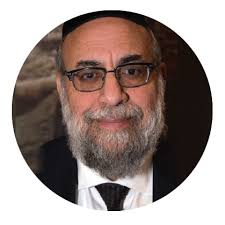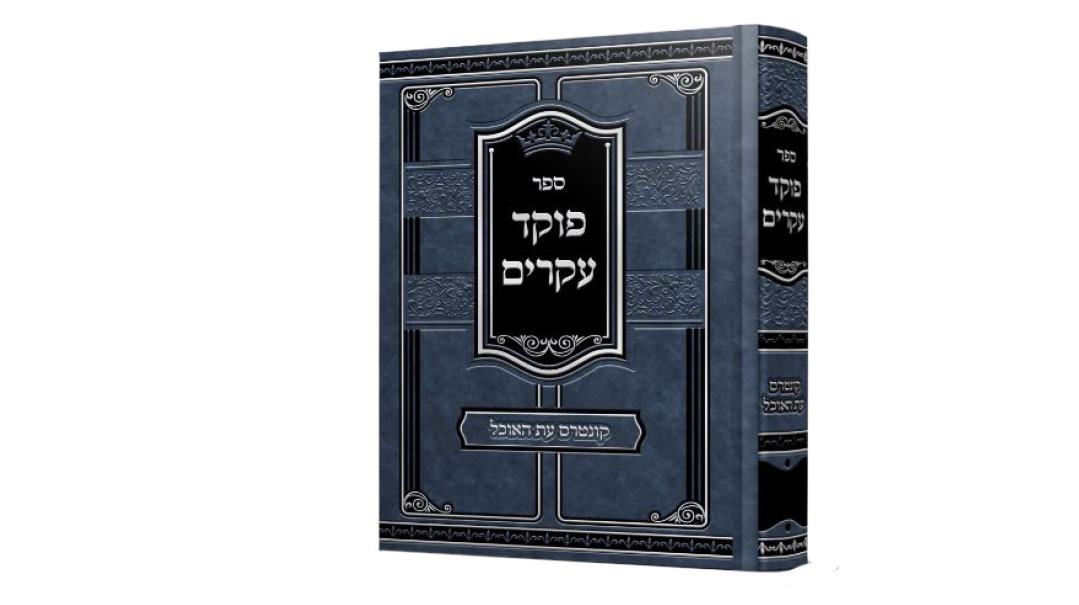Rav Tzaddok’s Personal Journey

One of the most profound and painful nisyonos is that of infertility

This world is a journey, as the Mesillas Yesharim has taught us, and our mission is to navigate it to the best of our abilities. Alongside the physical journey that has been granted to us is a journey of avodas Hashem. Individuals are given the opportunity to grow and elevate themselves through the challenges and nisyonos that HaKadosh Baruch Hu, in His infinite wisdom, provides us.
These nisyonos come in various forms and intensities. Some are integral to our daily lives — such as the commitment to daven with kavanah, act with derech eretz, and immerse ourselves in Torah and chesed. For these, our educational institutions provide us with the necessary tools through the study of essential seforim such as Mesillas Yesharim and the Chofetz Chaim.
Yet there are certain nisyonos that seem particularly daunting — finding a suitable shidduch, financial difficulties, parenting trials beyond the ordinary, and serious health issues. Addressing these challenges requires special guidance and tools. While they are not always covered in a standard curriculum, the Torah, as taught by our gedolim, offers profound insights on handling these nisyonos. And, thankfully, there are numerous esteemed individuals and organizations dedicated to supporting those grappling with such trials.
One of the most profound and painful nisyonos is that of infertility. Here, too, the community has risen to the occasion, with remarkable organizations and dedicated individuals providing crucial support and assistance.
But this particular nisayon holds a unique place within Klal Yisrael’s history and experience. The Avos and Imahos — Avraham and Sarah, Yitzchak and Rivkah, and Rachel Imeinu — each faced this challenge, and through their experiences, the foundation of Klal Yisrael was established. Each time we celebrate a wedding or a sheva brachos, we recite the blessing: “May the barren one of Klal Yisrael rejoice as her children are gathered back to Eretz Yisrael.”
Chazal tell us that when Sarah Imeinu finally was granted the wonderful, miraculous gift of bearing a child, all the barren women of the world bore children as well. We understand why Sarah was worthy of such a miraculous gift, but why did all the women of the world receive this gift as well?
Our holy seforim tell us that it was in the zechus of Sarah Imeinu. She experienced herself the depth of pain and hopelessness that accompanies long years of infertility — but she was on such a high level that she would not have been able to achieve complete simchah if there were other women in the world still suffering that incredible pain. So in her merit, Hashem remembered all the other barren women in the world to allow Sarah Imeinu to experience true joy.
Many decades ago, I learned with an avreich a few years older than me in Yeshivah Chofetz Chaim (then in Forest Hills). He approached me with a very personal request. He had already been married a few years, and he and his wife were struggling with infertility.
With great emotion, he said to me, “I know that you often go to speak with the Rosh Yeshivah, Rav Yaakov Kamenetsky. Would you be able to give him my name and the name of my wife to get a brachah for us to be zocheh to have a child?”
Knowing how difficult it was for him to make that request, I assured him I would do so on my next visit.
When I presented this request to Rav Yaakov, he asked me if this fellow had also asked the rosh yeshivah of Chofetz Chaim, Rav Henoch Leibowitz, for a brachah.
I responded that I understood that he felt uncomfortable approaching his rebbi for a brachah, because Rav Leibowitz was not himself zocheh to children.
Rav Yaakov responded rather forcefully that this was a big mistake on this fellow’s part. Rav Yaakov explained that of course he himself would extend a brachah with all his heart to the young couple. However, Rav Henoch understood this fellow’s pain better than anyone else, and would surely give a heartfelt brachah from the depths of his neshamah.
After that memorable meeting with Rav Yaakov, I remember sharing with many others what the Rosh Yeshivah taught me: No matter how incredibly sensitive he was to the pain of other Yidden turning to him for a brachah or words of chizuk, in this singular area, it was impossible to truly feel the kind of pain this young couple was suffering without living through the same nisayon oneself. On some level, it is a nisayon like no other.
But where is the Torah guidance for understanding such a nisayon? Why did Hashem build Klal Yisrael through this nisayon of infertility? Why do Chazal teach that there are six akaros — the Imahos Sarah, Rivkah, and Rachel, the mother of Shimshon, Chanah, and the woman of Shunam? The fact that we read the accounts of Sarah and Chanah on Rosh Hashanah underscores the significance of this challenge.
A unique gadol who lived more than 150 years ago dealt with this issue.
Rav Tzaddok HaKohein Rabinowitz of Lublin was born in 1823 into a Litvish family of disciples of the Vilna Gaon. But he later became a devoted follower of the Ishbitzer Rebbe and eventually a Rebbe himself, profoundly influencing the likes of Rav Eliyahu Eliezer Dessler, Rav Yitzchok Hutner, and Rav Moshe Shapira. His extensive writings cover every facet of Torah, both nigleh and nistar, with a profound depth of understanding. (Rav Moshe Shapira told a talmid that there is no difficult sugya in Navi that Rav Tzaddok does not explain.)
But Rav Tzaddok was never blessed with children. Among his many works is a small but significant sefer titled Pokeid Akarim — “Remembrance of the Barren.” This sefer explores the lives of the six women mentioned in Chazal, illustrating how each opened a unique gateway to Hashem and gave birth to a child who impacted Klal Yisrael.
Through learning this sefer, a person can understand that personal nisyonos and pain bond one with HaKadosh Baruch Hu and with Klal Yisrael’s entire existence, from the Avos till the Geulah. Pokeid Akarim is not just for the individuals and families struggling with this particular overwhelming nisayon; every member of Klal Yisrael needs to understand the depths of the pain of infertility and its place in HaKadosh Baruch Hu’s master plan for the world. This profound work has been made more accessible to contemporary readers in And Hashem Remembered Them, an adaptation by Rabbi Zave Rudman, whose own journey reflects his deep engagement with both mussar and chassidus.
In addition, what makes this important sefer truly unique is that Chazal teach us that Torah learned with difficulty remains. After reading a significant portion of this sefer, my fervent tefillah is that the Torah of Rav Tzaddok should bring solace and fulfillment to all who struggle with infertility and ultimately contribute to the complete and joyous fulfillment of Klal Yisrael’s transformation from akarah to simchah.
And finally, if I may be so bold: If I could offer some words of chizuk to Rav Tzaddok himself, if he were here among us, I would tell him about another great gadol in the generation after his. Rav Meir Shapiro also suffered from the same plight of infertility. However, he commented to one of his closest students a little while before he passed away that while he did not merit to fulfill the mitzvah of peru u’revu by having children, he was mekayem the mitzvah by creating two spiritual legacies, the Daf Yomi and the Yeshivah of Chachmei Lublin.
Rav Tzaddok, the towering spiritual legacy that you left behind with all your teachings is epitomized by the very sefer that continues to give chizuk and strength to the members of Klal Yisrael who without doubt need it the most.
Rabbi Chaim Aryeh Z. Ginzberg is the rav of the Chofetz Chaim Torah Center of Cedarhurst and the founding rav of Ohr Moshe Institute in Hillcrest, Queens. He is a published author of several sifrei halachah, and a frequent contributor to many magazines and newspapers, where he writes the Torah hashkafah on timely issues of the day. He is also a sought-after lecturer on Torah hashkafah at a variety of venues around the country.
Oops! We could not locate your form.







